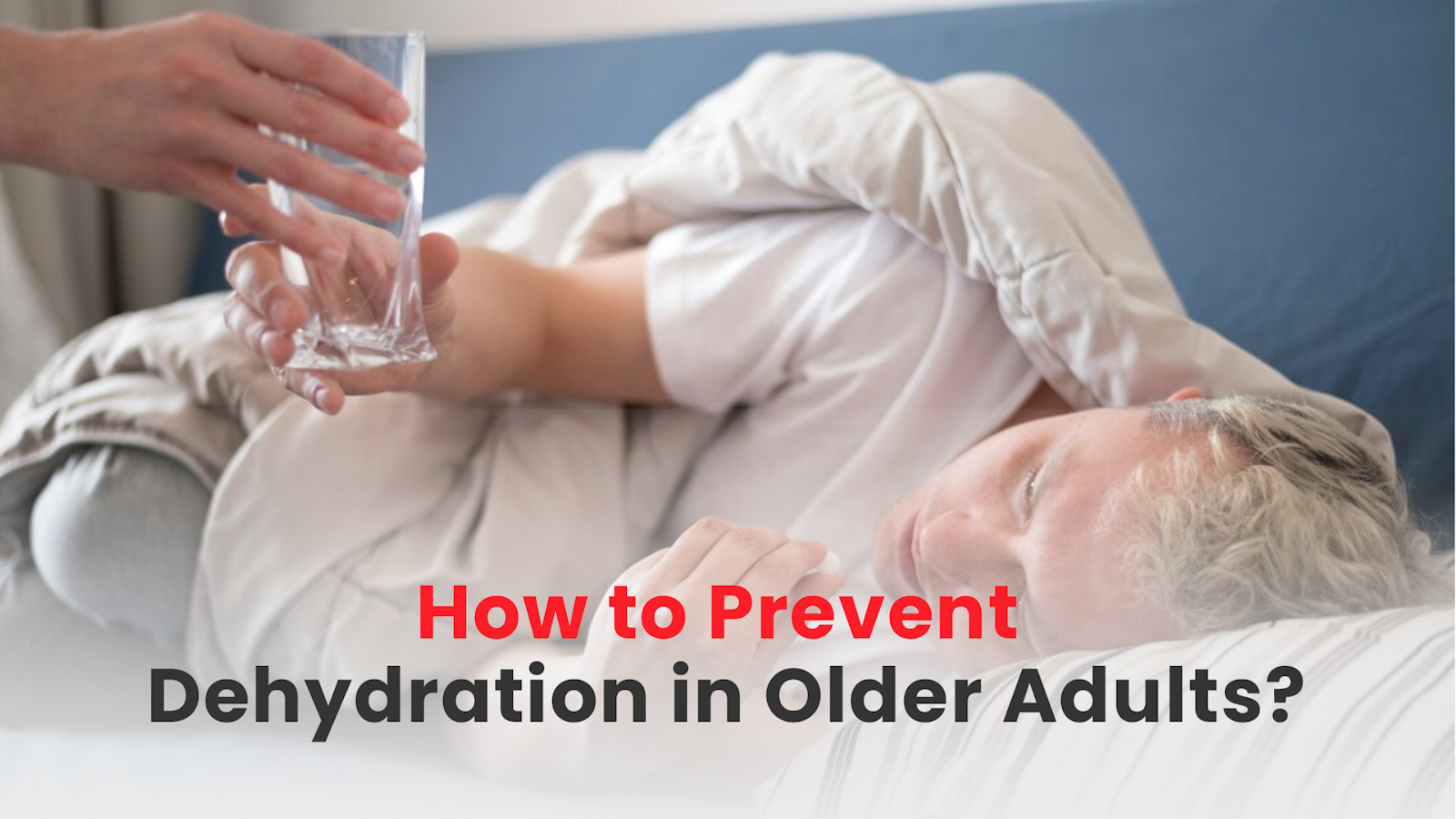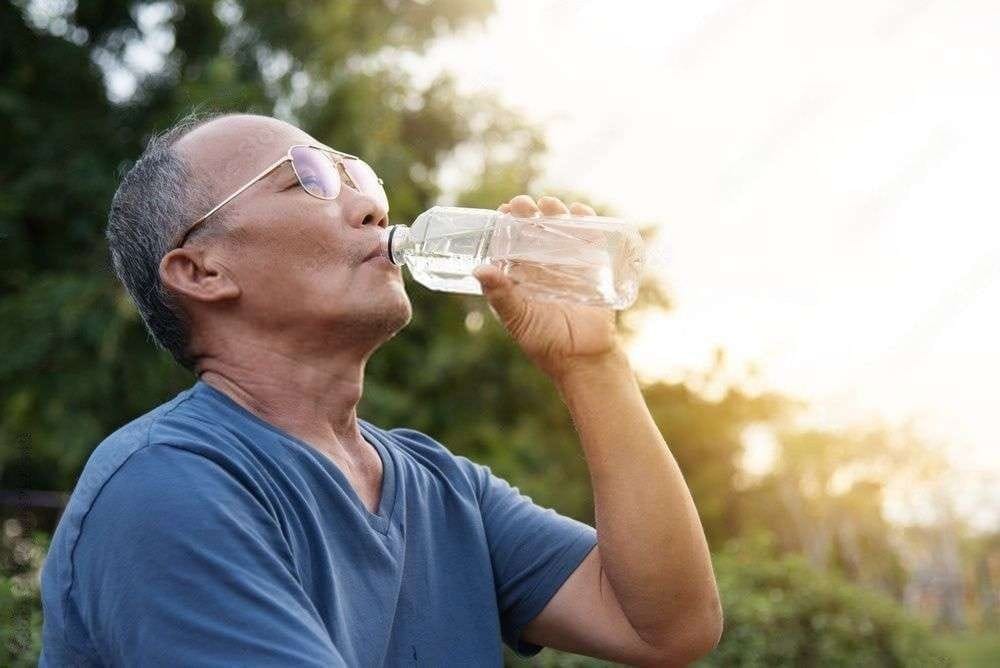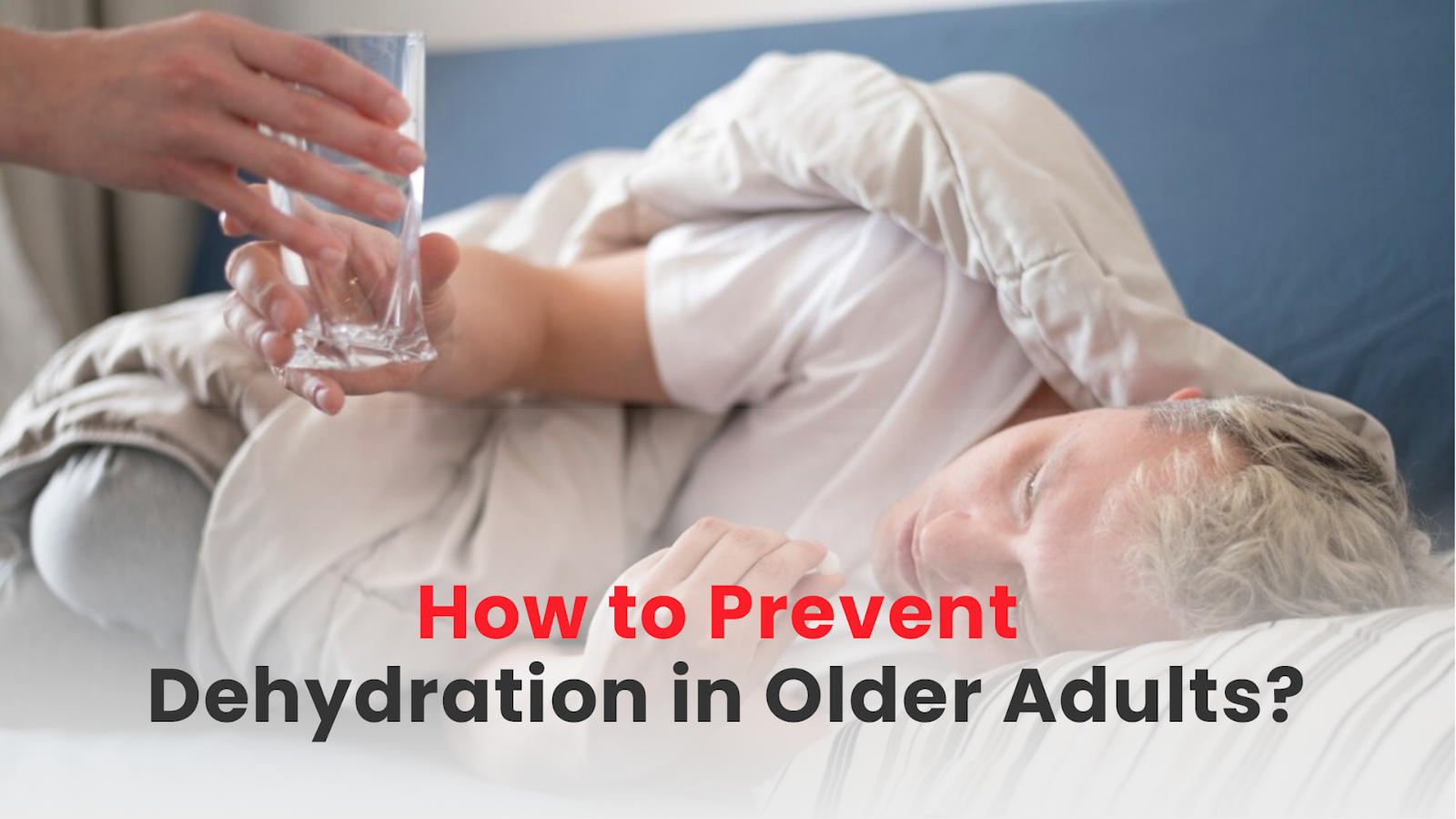Dehydration can cause grave conditions in individuals from all age groups. If left unchecked, it can especially become life-threatening for seniors. As people age, their thirst sensation degrades significantly, making dehydration in elders a frequent phenomenon. It can lead to serious health issues, including constipation, kidney stones, blood clots, and lowered blood pressure.
Older adults possessing a weak immune system are at a higher risk of suffering from dehydration. Lung, bladder, or stomach infections can further worsen this dreadful ailment. Therefore, the caregiver of senior loved ones must carefully monitor their fluid intake to avoid any alarming circumstances.

How to Prevent Dehydration in Older Adults?
Causes and Symptoms
Common causes of disrupted water balance in elders include vomiting, diarrhea, profuse sweating, and increased urination. Exercise plays a crucial role in the life of seniors, protecting them from osteoporosis, diabetes, and heart diseases. However, it also makes them more prone to dehydration.
Tracking symptoms like fatigue, dizziness, and painful urination can help identify dehydration in the nick of time. Following are five suggestions from our team of experts at My Noble Care to help you avoid this terrible situation.

1. Diversify Fluid Intake:
Consuming water at frequent intervals may seem intimidating to most seniors. The best way to tackle this is to diversify their liquid consumption by adding milk, juices, and hydrating foods to their diet. Hydration in elders can do wonders for their physical and mental wellbeing, as insufficient water intake can severely damage brain function.
Bringing variety to liquid intake can make staying hydrated an enjoyable activity. You can ask your elderly loved ones about their favorite fruit punch or smoothie and offer to make it for them in regular gaps!
2. Set Timers to Avoid Neglect:
For those caring for an older adult, setting reminders and alarms to keep tabs on their fluid intake can come in handy. In this regard, senior citizens suffering from forgetfulness and memory issues like dementia or Alzheimer’s need special attention from their caregivers. You can also download apps that record your loved one’s progress through the number of glasses they have drank during the day.
Staying consistent with healthy fluid consumption can significantly help prevent dehydration in elders. Once they build a habit of religiously drinking water after mealtimes, any physical activity or exercise, it becomes easier to stick to the routine.
3. Look out for Sweating and Evaporation to prevent dehydration in older adults:
Scorching heat in summers can cause evaporation and excessive sweating leading to dehydration. Apart from maintaining a healthy liquid intake, it is equally necessary to ensure that your senior loved one is not losing bodily fluids due to hot weather. Using air conditioners or fans to fight humidity and allow air exchange is a great solution.
The living environment of older adults can majorly impact their health. At My Noble Care, we pay special attention to ventilation, room temperature, and food and liquid intake of elders to protect them from dehydration during all seasons.
4. Maintain a Hydrating Diet to prevent dehydration in older adults:
Seniors often face difficulty keeping a nourishing diet which fulfills their fluid needs. Restricted movement and strong medication make meal preparation an exhausting task for them. As a caregiver, you must take the responsibility to include fruits, vegetables, and soup in your loved one’s diet to make it rich in water content.
Foods like yogurt, broths, lean fish and meat, and jellies are good sources of water intake. They help elders feel energized and stay hydrated for long periods, improving their body and brain functioning. In cases of severe dehydration, it is best to consult a doctor for appropriate advice.
5. Use Encouraging Visual Aids to prevent dehydration in older adults:
It might come as a surprise to you how long small tokens of appreciation and encouragement can go! Keeping small notes as reminders on your senior loved one’s bedside drawer, dinner table, or bathroom counter can put them in a better mood and motivate them to stay hydrated throughout the day.
When you cannot be around an older adult for hours, visual aids like small chits, posters, or charts will keep you covered. Remember to put these reminders in places easily accessible to your senior loved ones, where there is a greater chance for them to look at your message.
Conclusion:
Dehydration in elders can open gates to many illnesses among this age group. An impaired ability to rely on themselves for timely food and water intake makes older adults more vulnerable to this condition. We highly recommend 24/7 oversight and supervision of the elderly to eliminate any possibility of dehydration.
At My Noble Care, our team is determined to provide the best environment for our residents. Our retirement resorts and nursing homes pay close attention to the personal needs of all senior citizens, so there is no chance of any reckless mishap.

